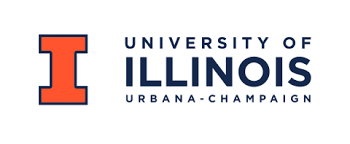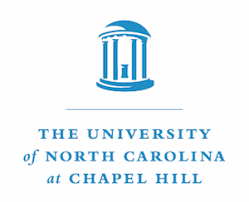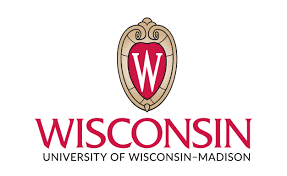10 Best Master’s of Library Science Degrees

Find your perfect college degree
Library science professionals are responsible for gathering information and promoting literacy in communities and institutions in the government, schools, and the private sector. If you have a passion for literacy, research, and organizing information, you have the potential to succeed as a library and information science professional.
Overview:
Library science programs prepare students to be specialists in library and information-related careers. The most popular career option, of course, is to become a Librarian. However, if you choose to attend a library science master’s program, your opportunities are limitless!
Jobs can be found in public libraries, government agencies, museums, academic libraries, and more. Information services provide an invaluable service to their communities. This degree offers an awesome opportunity to preserve information for future generations!
Librarians and other library science professionals promote literacy and information acquisition in schools, government agencies, private establishments, and local communities. A 2018 survey by Pew Research found that 78% of American adults and 87% of millennials trust libraries as trustworthy and reliable information sources.
Quick audio summary:
A LIBRARIAN’S SALARY…
The Bureau of Labor Statistics reports a median annual salary for a Librarian was $61,190, as of May 2021, with the highest 10% earning upwards of $97,870 per year. Colleges and universities pay the highest salaries in the industry.

METHODOLOGY
Library Science entails more than just manning the library and keeping track of the stored publications in it! With a master’s degree in this multidisciplinary field, professionals become experts in collecting, organizing, preserving, and disseminating information.
The impressive Master’s in Library Science degree programs on our list are the best in the country, offered by top-rank universities across the United States. They are hailed for their outstanding academic features that shape the most competent professionals:
- Rigorous master’s-level coursework in Library Science and related information services offered on-campus & online learning or in a hybrid/blended format, including core courses, elective courses, and specialization options,
- The Master’s of Library courses emphasize up-to-date practices and principles that qualify students for leadership positions in the academe, as well as in public or academic libraries,
- Taught by a panel of instructors who possess graduate-level competencies in Library Science or hold top-level positions in the field,
- Impressive academic standing as demonstrated in the school or Master of Library Science program’s top rankings, industry recognition, and active organizational memberships,
- Financial aid and tuition assistance to qualified grad students, as well as student support,
- Official accreditation from academic agencies.
THE 10 BEST MASTER’S OF LIBRARY SCIENCE DEGREES
University of Illinois – Urbana-Champaign

Champaign, IL
Master of Science in Library & Information Science
The Master of Library & Information Science at the University of Illinois – Urbana-Champaign guarantees to provide you with the best master’s of library science education in the country.
- The university’s MS/LIS program immerses you in a fertile learning environment. Students learn a robust academic foundation and opportunities to discover their interests. It allows you to sharpen your skills through networking, extracurricular activities, and interaction with an expert faculty.
- The University of Illinois’ Master of Library and Information Science program is accredited by the American Library Association.
- The University of Illinois’ Master of Library and Information Science prepares you for leadership positions in various settings including schools, and academic and public libraries.
- The University of Illinois – Urbana-Champaign offers its Master of Library and Information Science via on-campus and online options. Both methods guarantee the same high-quality education.
- To qualify for enrollment in the program, there are specific requirements that you need to comply with. These are:
- A bachelor’s degree
- A completed online application
- Three letters of reference
- Current resume
- Personal statement
- Proof of English proficiency for non-native English speakers
- Payment of application fee
Standout Features of the University of Illinois-Urbana Champaign’s Master of Library and Information Science Degree Program
The University of Illinois Master of Library and Information Science program is mentored by award-winning and nationally recognized teachers.
The program ensures quality learning by assigning each student to experienced advisors, as well as providing exceptional student support. They will guide you in developing a program that aligns with your career goals and objectives. The US News & World Report ranks the University of Illinois Master of Library and Information Science as the best in the country.
Hollywood star Tom Hanks’ brother, Larry Hanks, is a professor in the Department of Entomology at the University of Illinois.
University of North Carolina–Chapel Hill

Chapel Hill, NC
Master of Science in Library Science
The Master of Science – Library Science at the University of North California is designed to prepare you for a successful career in library management and information science.
- The MSLS program aims to develop you as an expert in collecting, storing, organizing, and retrieving recorded knowledge. It also intends to provide you with a solid theoretical education in information management. It also teaches you to apply its theories in real-world situations.
- If you qualify for enrollment, you can become a part of UNC’s Master of Science in Library Science program. These are the application requirements:
- A Bachelor’s Degree
- A Completed Online Application
- Three Letters of Recommendation
- Proof of English Proficiency (non-native English speakers)
- Unofficial Transcripts
- Statement of Purpose
- Payment of application fee
Standout Features: University of North Carolina-Chapel Hill – Master of Science in Library Science Degree Program
The University of North Carolina’s Master of Science in Library Science commits to producing graduates capable of spearheading the development of new methods of making access to information easier and faster.
The university is confident that its graduates are suited for promising careers in government, academic institutions, special and public libraries, and college information and media centers.
UNC’s MSLS program develops you into an expert in database administration, youth librarianship, and records and archives management, plus an array of other skills to help you succeed in library and information management.
When classes at the University of North Carolina officially began in 1795, the school had a student body of only one for the first two weeks.
University of Washington

Seattle, WA
Master of Library and Information Science
The Master of Library & Information Science program at the University of Washington is designed to produce leaders and innovators in library and information management.
- The program commits to developing your skills and confidence to play a leadership role in any industry that gathers, stores, and manages knowledge and information.
- It equips students with theoretical and practical skills to make your library efficient amid a rapidly changing landscape.
- If you are interested in applying to UW’s Master of Library and Information Science degree program, these are the university’s application requirements:
- A bachelor’s degree (GPA of 3.0)
- Law Librarianship applicants must hold a Juris Doctor degree from a law school approved by the American Bar Association (ABA).
- GRE scores – optional
- A completed online application
- Transcripts
- Proof of English proficiency for non-native English speakers
- Personal statement
- Diversity statement
- Written essay and short-answer response
- Two recommendation letters
- Payment of application fee
Standout Features of the University of Washington’s Master of Library and Information Science Degree Program
The Master of Library & Information Science degree program at the University of Washington focuses on theoretical knowledge, practical skills, and real-world librarianship experience from partner organizations and companies.
UW’s Master of Library and Information Science guarantees to provide you with a deep understanding of librarianship and information management. Its MLIS program is anchored on knowledge organization, information ethics, and design. It also offers electives that allow you to make a deeper assessment of your interests and get a clearer perspective of your professional goals.
The University of Washington played its first collegiate football game in 1893 against Stanford. It got a devastating 40 – 0 loss.
University of Southern California

Los Angeles, CA
Master of Management in Library & Information Science
The University of California’s Master of Management in Library and Information Science is considered the only degree of its kind to be offered by a top-caliber business school. It is a fully-online program designed for students who aspire to pursue a master’s degree but cannot attend on-campus classes due to work, distance, or time constraints.
- USC’s (online learning) Master of Management in Library and Information Science program develops your leadership, management, and business skills. It is committed to preparing you for a rewarding career in the field of library and information science.
- To qualify for enrollment in USC’s MMLIS graduate degree program, there are specific requirements that you need to comply with. These are:
- A bachelor’s degree
- GPA 3.0 (minimum)
- Completed online application
- Transcripts
- Proof of English proficiency if you are a non-native English speaker
- Statement of purpose
- Two letters of recommendation
- Current resume
- Payment of application fee
Standout Features – University of Southern California’s Master of Management in Library and Information Science Program
The Master of Management – Library & Information Science (offered online) at the University of Southern California is a cut above traditional library and information science programs. It equips you with management skills and strategies to emphasize grooming you for leadership in librarianship and information management.
The University of Southern California offers its MMLIS program through its highly acclaimed Marshall School of Business. The program provides you with business, management, and leadership training, and it prepares you for leadership roles in librarianship and information management.
The University of Southern California’s MMLIS allows you to align your classes with your work schedule. It’s an added benefit to the high quality of education you get from the university.
The courses in USC’s online Master of Management in Library and Information Science are mentored by highly respected faculty members. They play an essential role in USC’s goal to produce leaders in the library and information profession.
Since the 1929 inception of the Academy Awards, the University of Southern California has consistently had an alumnus nominated for an Oscar each year. USC is the only school in the US to attain this feat.
University of Maryland

College Park, MD
Master of Library and Information Science
The MLIS or Master of Library & Information Science program at the University of Maryland focuses on the competencies to manage information institutions, including libraries, archives, and museums. It aims to produce graduates that help meet the needs of people seeking information for literacy, learning, and other purposes.
- The University of Maryland’s MLIS program teaches you to translate data into something you can use to solve real-world challenges.
- The MLIS program aims to develop your skills in information building and data analysis. It builds your competency in digital curation. These skills are highly sought-after in various sectors, including government, intelligence, and legal informatics.
- The University of Maryland delivers its Master of Library and Information Science program via the traditional, face-to-face, online, or hybrid method.
- To qualify for enrollment in the MLIS program, you must have:
- A bachelor’s degree
- Minimum GPA: 3.0
- A completed online application
- Unofficial transcripts
- Statement of purpose
- Three academic or professional references
- Current resume or cv
- Proof of English proficiency if you are a non-native English speaker
- Completion of the supplementary application
- Application fee payment
Standout Features of the University of Maryland’s Master of Library and Information Science Degree Program
The University of Maryland’s Master of Library and Information Science degree program is manned by a world-renowned faculty. They impart their knowledge to students through hands-on projects.
With the aid of the university’s research centers and more than 400 partners, the mentorship of the faculty provides you with something beyond learning, and it gives you an experience that makes you ready to work in the real world.
Sergey Brin, one of the co-founders of Google, was a 1993 computer science graduate of the University of Maryland.
Appalachian State University

Boone, NC
Appalachian State University’s Master of Library Science is an online program designed for individuals who aspire to enroll in an advanced library science program that can offer solutions to studying time and distance constraints.
- The university’s Master of Library Science program consists of an interactive curriculum that stimulates your thoughts and engages you – at your convenient time and location.
- Graduation from the Master of Library Science program of Appalachian State University qualifies you to apply for a license as a Media Coordinator in North Carolina. It also entitles you to vie for Public Librarian Certification from North Carolina’s Public Librarian Certification Commission.
- Appalachian State University’s Master of Library Science degree program is registered with the American Association of School Librarians (AASL). It is accredited by the Council for Accreditation of Educator Preparation (CAEP).
- If you want to be a part of Appalachian State University’s Master of Library Science degree program, meet these requirements:
- A bachelor’s degree – minimum GPA of 3.0
- A completed online application
- GRE scores
- Proof of English proficiency – for non-native English speakers
- Three academic or professional recommendations
- Resume
- Transcripts
- Payment of application fee
Standout Features of Appalachian State University’s Master of Library Science Degree Program
The Master of Library Science at Appalachian University is a flexible online program that offers synchronous-asynchronous blend modes of teaching. One of its most valued objectives is to provide the Southeast region with competent librarians to impact its school and public libraries positively.
The university promotes creative pedagogy, rigorous research, and a blend of theory and practice to create genuine learning experiences. These training approaches help build the student’s confidence. It makes them ready to take leadership roles as library and information science professionals.
Ninety-eight percent of Appalachian University’s full-time faculty are holders of doctoral, first professional, or other terminal degrees.
University of Wisconsin-Madison

Madison, WI
MA in Library Information Studies
The University of Wisconsin-Madison offers a Master of Arts in Information Studies. The program focuses on enhancing a professional’s systematic gathering, assessment, and use of information in a diverse global society.
- The program also prepares you for competency in these fields:
- Librarianship
- Information Management and Analysis
- Digital Archiving
- Information Organization
- Information Technologies
- Full-time students may finish the program in two academic years, while part-time students do so in three to four years.
- The MA in Library Information Studies requires students to undergo a field practicum to gain hands-on experience in areas aligned with their career objectives.
- These are required for enrollment:
- A bachelor’s degree
- Minimum GPA of 3.0
- A completed online application
- Proof of English proficiency if English is not your native language
- Three letters of recommendation
- Payment of application fee
Standout Features of the University of Wisconsin-Madison’s Master of Library Information Studies Degree Program
The University of Wisconsin-Madison delivers its Master’s degree in Library Information Studies via traditional on-campus learning and online or distance education. Both learning models consist of small class sizes, approachable faculty members, and a supportive community.
The university’s online MLIS is a flexible program designed for students who can’t attend face-to-face classes due to commitments and activities other than academic obligations.
The University of Wisconsin-Madison graduate degree program guarantees the same quality of education for both traditional and online MLIS programs. Its MLIS program exposes you to real-world experience via internships or student employment in establishments including libraries, laboratories, museums, and archives.
Students of the university’s degree online program can take their practicum in their locality.
Satya Nadella, the current CEO of Microsoft, is a 1990 graduate with a Master’s in Computer Science degree from the University of Wisconsin-Madison. He was named the best CEO in the US in 2018.
The University of Alabama

Tuscaloosa, AL
Master of Library and Information Studies (Online)
The Master of Library & Information Studies taught online at the University of Alabama, prepares students for leadership roles in the library and information service profession.
- The program focuses on in-depth knowledge of and expertise in the ethical and socially responsible operation, management, and organization of information.
- Students of UA’s MLIS program are required to comply with specific hardware and software requirements, including the following:
- Access to a high-speed internet connection,
- Personal Computer with an up-to-date operating system
- Headset with microphone
- To apply for enrollment, you should meet the following requirements:
- A bachelor’s degree
- Minimum 3.0 GPA
- A completed online application
- Statement of purpose
- Resume or curriculum vitae
- Unofficial transcripts
- Three letters of recommendation
- Application fee
Standout Features – University of Alabama’s Online Master of Library and Information Studies Degree Program
The Master of Library & Information Studies at the University of Alabama is for working professionals aspiring to pursue a master’s degree.
The MLIS utilizes the cohort model. It guarantees full support from peers. Coursework involved in the program consists of courses delivered to students synchronously on a one-night-per-week basis. It means you’ll be sharing the same content with cohorts and working with them as a group.
The program allows you to discuss issues and solutions with instructors. The MLIS at the University of Alabama is not just a degree online class. It’s also a venue for building a network with classmates and professors.
Upon graduation, students of the University of Alabama who never had a GPA lower than 4.0 will wear a red cap instead of black.
University of South Florida-Main Campus

Tampa, FL
MA in Library and Information Science (Online)
The MA in Library and Info Science at the University of South Florida’s main campus is a fully online degree program. The coursework focuses on enhancing the competencies to execute the profession excellently.
- Media Specialist or School Librarians certifications are granted by the state of Florida’s Department of Education. Additionally, you will also be required to pass the Florida Teacher Certification Examination in School Media.
- Students earn the Master of Library and Information Studies degree from the University of Southern Florida after completing 39 semester hours of coursework and a GPA not lower than “B.”
- The university’s MA in Library and Information Science is accredited by the American Library Association (ALA). Students learn major research areas of the program, including:
- Information Storage and Retrieval
- Metadata
- Public Librarianship
- Academic Librarianship
- School Media Specialist
- Records Management
- Visualization of Information
- Information Technology
- Information Policy
- Information Literacy
- To qualify for enrollment in the MLIS program of the University of South Florida, these are the school’s application requirements you should comply with:
- A bachelor’s degree
- A completed online application
- GRE scores – this may be waived if your GPA is not lower than 3.5 or at least 3.25 in major undergraduate courses
- Official transcripts
- An academic writing sample
- Letters of recommendation
- Resume
- Statement of purpose
- Proof of English proficiency if English is not your primary language
- Payment of application fee
Standout Features: University of South Florida’s MA in Library and Information Science Degree Program
The University of South Florida’s MA in Library & Information Science is one of the 94 public research-focused US universities classified as a “Doctoral University with Highest Research Activity” by the Carnegie Foundation for the Advancement of Teaching.
As an outstanding research university, the University of South Florida continues to explore new ideas, generate new knowledge, and strive to lead in innovation with the main mission of changing human lives for the better.
Florida’s senior citizens who meet the state residency requirements may enroll in undergraduate and graduate studies at Florida state universities for free – on a space-available basis.
Simmons University

Boston, MA
Master of Library and Information Science (online)
The Master of Library & Info Science program at Simmons University is delivered 100% online. It provides the ideal academic set up for students and professionals who cannot attend traditional on-campus classes due to time and distance constraints.
- The MLIS program at Simmons University has three areas of focus, with each of these areas intended to serve your passions and career goals:
- Archives Management
- Cultural Heritage
- Information Science and Technology, and
- School Library Teacher Program
- You may also take traditional face-to-face classes at Simmons University’s School of Library and Information Science West campus in South Hadley and Amherst, Massachusetts. It will allow you to combine traditional education and distance learning.
- To qualify for enrollment in Simmons University’s MLIS program, these are the school’s application requirements:
- A bachelor’s degree
- A completed online application
- Statement of purpose
- Current resume or CV
- Official transcripts
- GRE scores – if your cumulative GPA is lower than 3.0
- Proof of English proficiency if you are a non-native English speaker
- Payment of application fee
- A possible interview
Standout Features of Simmons University’s Master of Library and Information Science Degree Program
The Simmons University Master of Library & Info Science program can be completed entirely online or blended with face-to-face classes through the university’s multiple campus locations.
Students seeking a flexible program in terms of schedule and location of classes can ensure success with the university’s online MLIS degree. Its customizable “Design Your Own” program allows students to work with faculty advisors.
It ensures independent yet guided coursework that makes students develop expertise in their chosen area. The entire MLIS program prepares you for a rewarding career in librarianship and information management.
Simmons University is Number One in nurse.org’s 2021 list of “Top 10 Nursing Schools in Massachusetts.”

FREQUENTLY ASKED QUESTIONS
What are Library Science and Information Science?
Library science and information science programs often combine two different, yet related fields. Information Science refers to the process of providing access to large amounts of knowledge and information (most any type) accumulated over time. It includes the gathering, storage, and organization of information, along with how the information is used and the interpretation of said information, and more.
Library Science is a structured discipline and most commonly, refers to documents. Core courses in library science programs focus on learning about the principles, practices, and management of libraries and the important information contained within them. It is a multidisciplinary field centered on various processes. They collect and organize information, preserve it, and distribute the information science theory appropriately.
What makes Library Science and Information Science different?
Although slightly different, Library Science programs and Information Science programs often do not establish a distinction at the educational level. There is rarely a college or university that offers both degrees, as they involve similar coursework.
Most people in the industry even consider library science and information science interchangeable to a certain extent. However, most colleges and universities use the term “Library and Information Science” to point out the technical aspect of the subject.
Will earning a Master’s in Library Science help me advance my career?
Yes, earning a master’s degree in library science can help you advance your career. It provides you with specialized knowledge and skills that can help you move up within the library field, as well as give you the credentials needed to pursue leadership and administrative roles. A master’s degree can also help you develop innovative ways to use technology to better serve library patrons.
What is a Librarian?
A librarian is a professional who takes responsibility for the efficient management and operation of a public or private library. Most librarian jobs include opportunities to work in schools, government libraries, research facilities, museums, hospitals, and many other settings.
What are the common types of Librarians?
Within library services, there are several types of librarians and each of them plays a separate role in their community or workplace.
These are some of the common types of librarians:
Public Librarian
Public librarians direct the operation of public libraries in a municipality, city, or state. They interact with community members who come to the library to read books, conduct research, or find information. Public librarians are responsible for organizing the public library, researching new information, and acquiring new reading materials for the library database.
School Librarian
School librarians work in academic libraries of public or private elementary and middle schools. Aside from taking charge of the organization and order of the library, they also educate the students about the role of a library, how they can use it effectively, and instill in them the love of reading.
Academic Librarian
Academic librarians work in colleges and universities. Aside from managing library activities, one of their principal roles is to teach students to use the library database to find printed materials or online scholarly articles. They may also assist professors in accessing the research materials they need in their classes.
Specialty-Focused Librarian
A specialty library is a library that contains books, information, and reading materials that belong to the same genre or industry. The librarian who works here is specialty-focused. You will find specialty libraries in schools and public places like zoos and museums. A good example of a specialty-focused librarian is the librarian who works in a law school library, where the books and other sources of information are focused on the law.
Is a Master’s program in Library Science necessary?
Individuals with baccalaureate degrees in library science can get entry-level jobs in a library setting. But if you aspire to work as a salaried public or academic librarian, a master’s degree in library science can help improve your competency and opportunities for career growth.
Most colleges and public libraries want librarians to hold master’s degrees in library science. It is because a master’s degree in the field will provide you with advanced knowledge and skills to work effectively in research libraries. Library science programs provide graduates with many positive opportunities for career advancement and higher salaries.
What are the benefits of having a Master of Library Science degree?
The continuous evolution of technology creates several career opportunities for individuals who hold a master’s degree in library science. This advanced degree can provide you with communication and research skills you’ll need not just as a librarian but also as a data miner or research analyst in the industrial sector.
According to the Bureau of Labor Statistics, the job market for librarians will grow by 9% during the 2020 – 2030 decade. Labor Statistics also reports an estimated 13,000 job openings for librarians each year for the same period.
As a holder of a Master of Library Science degree, you can certainly qualify for any of the following jobs:
- Library Media Specialists
- Archivist
- Digital Asset Management
- Library Director
- Information Broker
- Public Librarian and/or Program Director
- Cataloging and Acquisition Librarian
- Adult Services Librarian
- Database Editor
- Business Development Specialist
- Director of Media and Professional Development
- Emerging Technologies Librarian
- Data Assets Manager
- Digital Initiatives Librarian
- Digital Curator
- Children’s Librarian in Youth Services
- Requirements Analyst
- School Librarian and Media Specialist
- Legal Information Librarian
- Medical Librarian
- Metadata Librarian
- Market Insights Analyst
- University Archivist
- Digital Preservation
- Senior Web Content Coordinator
- Information Architect
KEY TAKEAWAYS
For the dedicated reader, learner, or factfinder, earning a library science degree can be an exciting feat. Check out these points:
- Library science programs allow students the opportunity to expand their knowledge in the field, particularly through graduate degree master’s programs.
- Positions to consider include library media specialists, information services, metadata specialists, information architects, school librarians or associate professors, and many other types of information-related professionals. Academic libraries are a great place to look for employment!
- Library patrons rely on the expertise of the library science specialist to obtain and preserve information for future generations. Information seeking behavior relates to those searching for answers to their queries, for which a library can be a valuable source.
- There are many diverse information organizations to join if interested in the topic of library science, which promotes community engagement, such as the American Library Association.
- Library science programs are a great choice for those who are interested in information science careers as well. Students learn a variety of topics related to both aspects of library science in addition to the core curriculum.
- Library services include more than just providing a large selection of books to read. They include large databases, digital libraries, music, intellectual freedom, cultural and diversity programs, as well as archives, language and college prep programs, plus much more. Your degree program will prepare you to help others be their best!
- Can you earn your degree online? Most universities combine online programs with on-campus course offerings; however, online degree programs are available.
Additional Resources:




